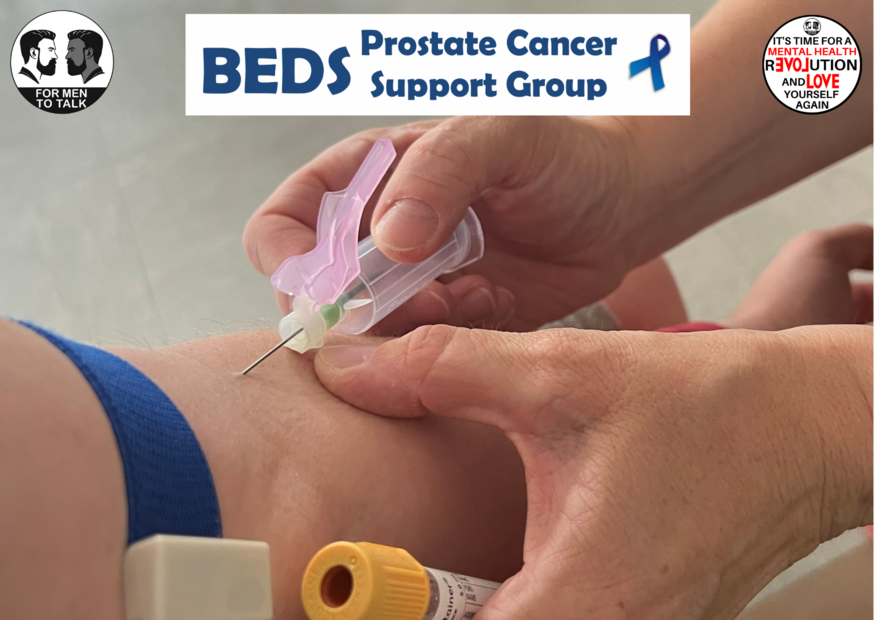‘For Men To Talk’ Founder takes PSA test to detect Prostate Cancer

Across the world, one man dies by suicide every minute of every day, with males accounting for 75% of all suicides. In relation to cancer, unchecked, prostate cancer rates will double over the next 15 years and globally, from the current rate of 12,000 deaths every year right now. It is vital that men understand their physical health, as well as their mental health.
With that in mind, on Saturday 30 July 2022, ‘For Men To Talk’ founder Luke Newman, at 41, joined the Bedfordshire Prostate Cancer Support Group (BPCSG) event at the Wetherley Centre in Biggleswade for a PSA Test.
BPCSG was established in 2014 by a small group of prostate cancer patients to provide support and encouragement to all men affected by prostate cancer and their spouses, partners, carers, relatives and friends.
Their aims and objectives are:
- To increase awareness of prostate cancer for men of all ages.
- To provide support and advice to men and families with prostate cancer
- To raise funds for the Prostate Cancer Unit at Bedford Hospital
The PSA test is a simple blood test used to help detect prostate cancer. Although it’s a sharp prick, the sample is taken and sent to a laboratory to be tested. The amount of PSA in your blood is measured in nanograms (a billionth of a gram) per millilitre of blood (ng/ml).
In its early stages, prostate cancer generally produces no symptoms, so it is important to diagnose the disease before symptoms arise and while it is still potentially curable. A recent trial suggests that treating prostate cancer may significantly prolong a man’s life.
Prostate cancer occurs in the prostate gland, the gland that produces the fluid that makes up semen. Tumours are often slow-growing and highly treatable. More than 50,000 men are diagnosed with prostate cancer every year.
The risk of developing prostate cancer increases with age, especially over 50 years old. 1 in 8 white men and 1 in 4 black men will have prostate cancer in their lifetime.
For those who have a family history (a brother or father with prostate cancer), they are 2.5 times more likely to get it. For men whose mother or sister have had breast cancer, chances increase too.
The following day, not even 24 hours after the test, Luke had received his results. Between 0 to 2.5 ng/mL is considered safe. 2.6 to 4 ng/mL is safe in most men but talk with your doctor about other risk factors. 4.0 to 10.0 ng/mL is suspicious and might suggest the possibility of prostate cancer.
Luke’s PSA total was 0.39 ng/ml, giving him some reassurance. Based on this information and the latest PSA score, it is recommended that he has a repeat test in July 2023.
You can download a PDF file of the symptoms poster of prostate cancer here.